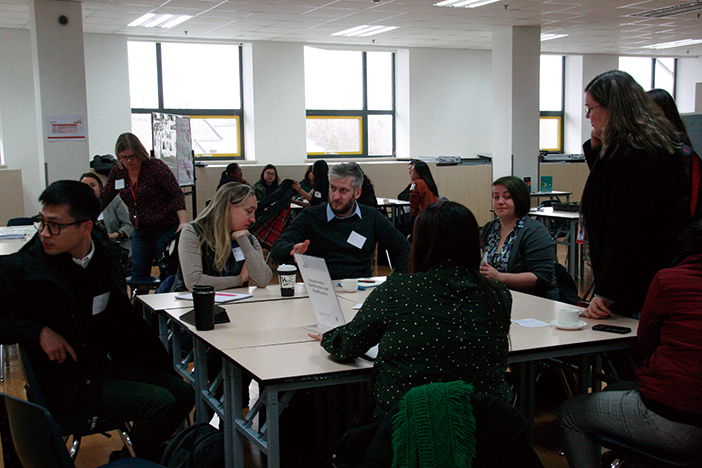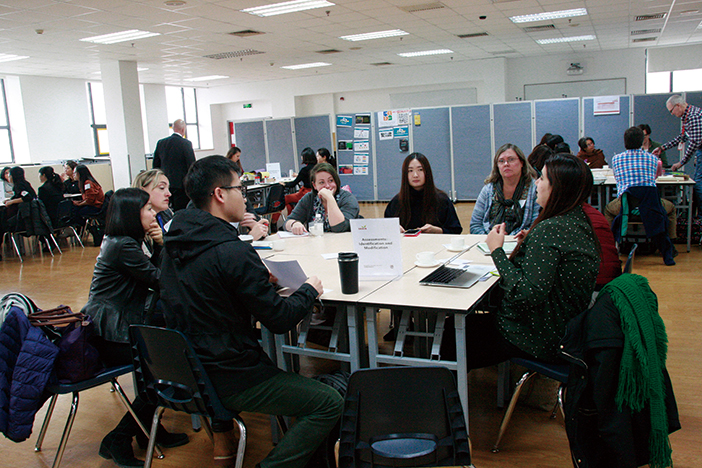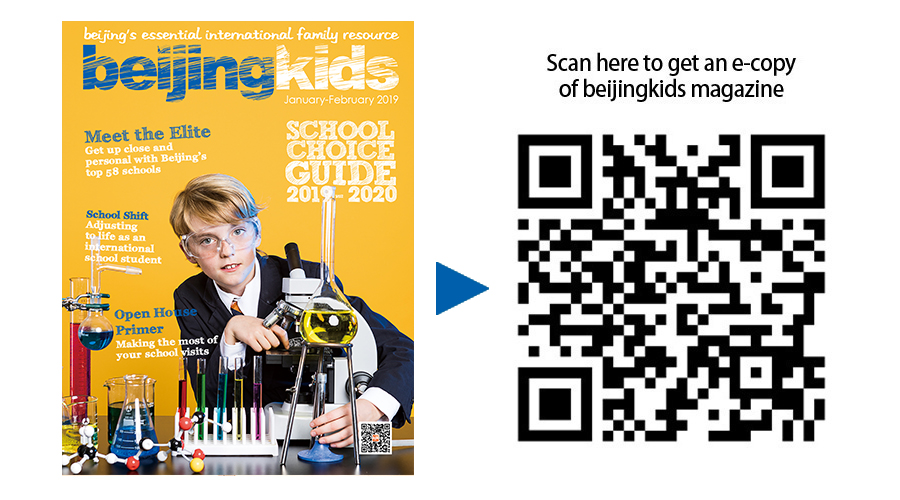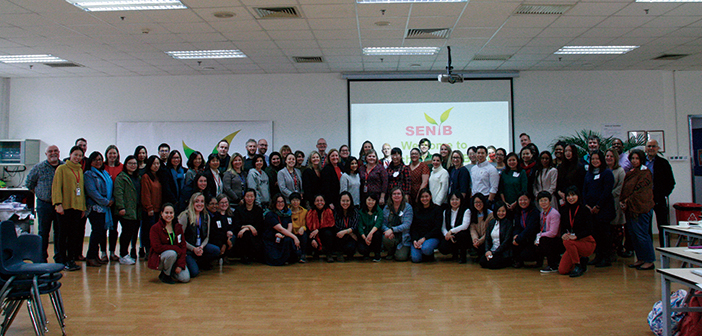The discussion about disabilities and special needs in China has come a long way in recent years, despite the reticence brought about by traditional attitudes on both the familial and the societal level. In a move which could be seen as a step forward for people with disabilities (PWDs), the State Council of China designated August 25 as “Disability Awareness and Prevention Day,” in response to a request from the China Disabled Persons Foundation (CDPF).
As many as 85 million Chinese people live with some form of disability, at least according to a national census carried out in 2010. The same data revealed that almost half of Chinese PWDs (46 percent) at that time were illiterate due to poverty, social discrimination, or the lack of barrier-free facilities and teaching staff prepared for students with special needs.
The government’s National Action Plan on Disability Prevention (2016-2020) mentions prevention and control of disability in two different contexts: the first, and perhaps the polarizing one, focuses on birth defects, as about 900,000 babies are born with congenital disorders every year. The other focus is the improvement of environments to prevent or reduce the risk of injuries or diseases (infectious, endemic, chronic, and mental) which may cause temporary or permanent debilitation.

On the sidelines of that national plan came China’s move to revise the regulations on the education of PWDs, which promotes integrated education and opens up mainstream schools to students with special needs, as well as mandating local governments to allocate funding and resources for the education of PWDs.
The New York-based non-government group Human Rights Watch, however, says that while those new regulations have been influenced by international standards, they still fall short in critical areas as “China still imposes discriminatory obstacles for children with disabilities to be placed in mainstream schools.”
Grace Zhang, the managing editor of our sister brand Jingkids, experienced that in 2015 when her then-three-and-a-half-year-old son was “misdiagnosed” as having Asperger syndrome.
“My son dropped out of kindergarten because of violence. The principal suggested that we visit a doctor to see if my child is autistic. Later, a specialist did not diagnose autism but said my son had behavioral problems, so he referred us to an institution for behavioral training. He made some progress after a year of training so we decided to let him return to an integrated school environment,” she told us.
For Zhang, finding a suitable school proves to be an obstacle for many Chinese families with children with special needs because “if you tell the admissions people directly that the child has a problem, chances are that they will not accept the child for various reasons.” She, however, managed to enroll him into a kindergarten with fewer than ten students. But for elementary school, she says it’s another “obstacle.”
“Although the national policy stipulates that schools cannot refuse to enroll their children, the problem is that there are a large number of public primary schools in the country and enforcing the policy is just difficult. Teachers will also hate such children with behavioral problems, and there are too few special education facilities available.”
In the context of international education in Beijing, many institutions offer learning support services and at the same time, there’s an active community of special educational needs (SEN) educators and professionals in the city. Such a group is the Special Education Network in Beijing (SENIB) founded in 2009. We caught up with one of SENIB founders, Dr. Reed Rhodes, who is also an Early Childhood Center Student Support Teacher at Beijing City International School (BCIS).

What can you tell about progress in the discussion about special needs/education in Beijing?
Dr. Rhodes: The size of SEN programs within schools has grown and there has been a gradual merging of learning support (LS) and English language learning. Tanya Farrol and I founded SENIB in 2009 for SEN professionals to share resources and support each other within the context of Beijing. The current SENIB membership is currently over 200 professionals and people from the community, and has almost doubled in the past five years. SENIB is the first local chapter of Special Education Network in Asia (SENIA), an association of educators, professionals, and parents whose mission is to advocate for and provide resources/supports for differently-abled individuals.
Here are some of the trends that we have seen in Beijing since the establishment of SENIB:
• There’s an increase in the number of external expertise providers and there has been a move to offer a variety of services at multidisciplinary centers specifically catering to SEN needs.
• The number of shadow teachers in schools has also increased.
• There’s an improvement in the provision of professional development about SEN provided by international schools and delivered to local Chinese schools.
What should parents whose children may have special needs or been diagnosed with a learning disability expect in terms of special education in Beijing?
Dr. Rhodes: Although there is currently a dearth of educational placements for children with severe SEN (there is only one classroom for these children in Beijing), we at SENIB see a trend that most schools now employ LS teachers and counselors while a few have specialists like speech and language therapists and psychologists. Parents can contact schools directly to see what programs are offered.
Special needs is still a tricky topic, especially at the family level. What advice can you give to parents/families that feel burdened or rejected because of a special needs member?
Dr. Rhodes: At the very minimum, families can access help from an external expertise provider, especially at multidisciplinary centers that offer an array of specialists. But if they are at a loss, we have our WeChat and Facebook groups where families can meet like-minded people and specialists who can provide support. We also invite parents to our seasonal activities like a Resource Fair and general meetings of special needs educators held at different international schools in the city.
How do special needs educators in Beijing integrate 21st Century education into their SN programs?
Dr. Rhodes: The use of social media connects SEN providers who share information and resources and actually, many SENIB members in Beijing work at schools who are members of Next Frontier Inclusion (NFI), an organization that represents cutting-edge information for international educators in the field of SEN. NFI promotes and protects the interests of children who learn in different ways or at different rates by supporting schools in all aspects of their journey towards inclusion. During the school year, professionals from NFI regularly present workshops all over the world, including the yearly SENIA (Special Education Network in Asia) conference, as well as conducting special programs during the summer.

Agencies, Educational Institutions, and Groups Related to Special Education
The China Disabled Persons’ Federation (CDPF) is a national umbrella organization for persons with diverse disabilities. The CDPF is assisting related departments to formulate and implement education and job training plans for disabled people, including research and promotion of the Braille alphabet and sign language. No. 186 Xizhimen South St., Xicheng District. (6658 0228)
The Special Education Network in Beijing (SENIB) is the first established local chapter of SENIA (Special Education Network in Asia), founded by Dr. Reed Rhodes and Tanya Farrol in 2009 for SEN professionals to share resources and support each other within the context of Beijing. SENIB currently has over 200 members representing 24 international schools, external expertise providers, interested parents, and other people from the international community. (reed.rhodes@bcis.cn)
The Learning Frontier provides support to enhance children’s development in the areas of speech, language and communication, motor, learning, behaviors, and mental health. Their multidisciplinary team of internationally trained specialists is dedicated to ensuring your child’s success in school and community. 4th Floor, No.11 Dongbai Street, Chaoyang District. (6775 3268, 6775 3273, info@learningfrontier.cn)
LIH Olivia’s Place provides world-class, multidisciplinary pediatric therapy services to children of all abilities and all ages. Their services include pediatric therapy consulting services: occupational, physical, and speech therapies, psychology services, Applied Behavioral Analysis, and learning support with a multinational staff that provides consulting services in English and Chinese, as well as several other languages. 13 Jiu Xian Qiao Road, Building 6-1, Second Floor, Chaoyang District. (6461 6283, contact@oliviasplace.org)
Beijing Stars and Rain Education Institute for Autism aims to help organizations face the challenges of economic pressure (conflicts between charging standards and costing) and technical pressure (how to provide quality services based on professional technology; how to train teachers; how to gain parental trust), and promote the development of the autism services industry. Beijing Xingxingyu Education Research Institute. 4172 Shuangqiao Donglu, Chaoyang District. (8537 3485, xxy@autismchina.org)

This article appeared in the beijingkids 2019-2020 School Choice Guide.
Download your e-copy here.
